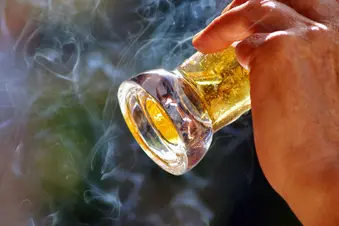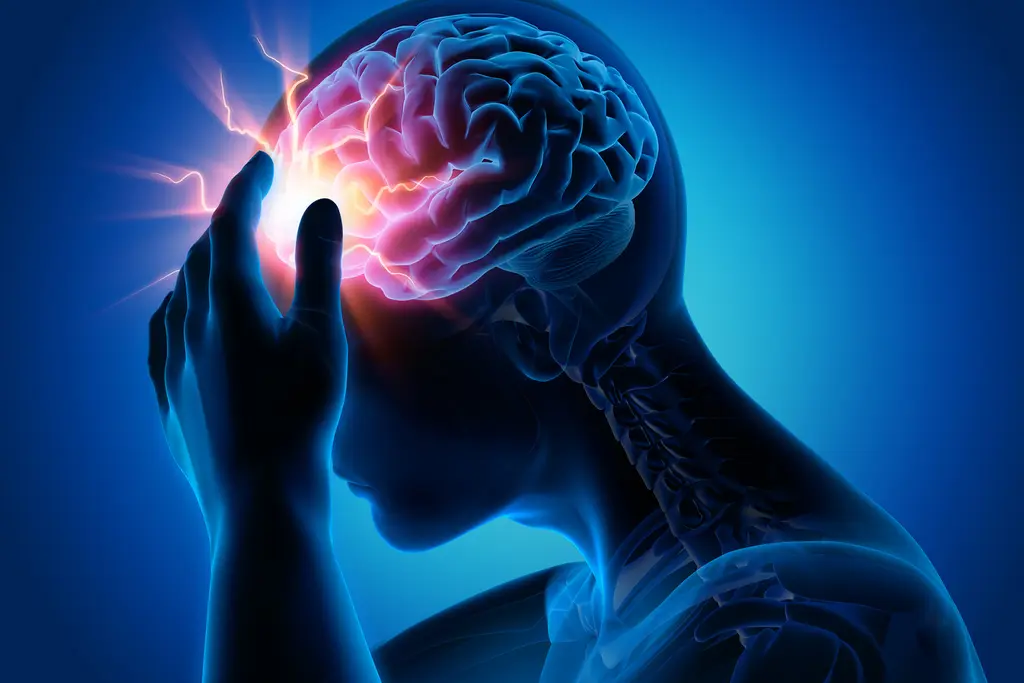
It’s not uncommon for people with treatment-resistant depression to have problems with drugs or alcohol. While some people may turn to substances to relieve their depression, drinking and drugs can make your condition worse and harder to treat. But you can get treatment for both depression and drug or alcohol problems at the same time.
Your doctor will help you choose just the right treatment plan.
Substance Use and Treatment-Resistant Depression: What’s the Link?
It’s not that substance use problems make antidepressants ineffective. Many people who have depression and problems with drugs or alcohol still benefit from standard medicines for depression. But when researchers look closely at people with treatment-resistant depression, they find they are more likely to also have a substance use disorder than folks whose depression responds easily to antidepressants.
While there’s a strong association between substance use and treatment-resistant depression, scientists can’t say for sure that one causes the other. They do know that the two conditions share common risk factors. It’s also possible that ongoing depression can drive a person to substance use and that ongoing substance use can have a negative effect on depression treatment.
Here are some things that raise your odds of both treatment-resistant depression and substance use disorder:
- Chronic depression that lasts for 6 months or longer
- Frequent depressive episodes
- Lots of stress in your life
- Anxiety or panic disorders
- Personality disorders
- Posttraumatic stress disorder
Some studies suggest that certain genes may also raise your risk for both substance use problems and depression. But we need more research to know which groups of people this might affect most.
How Do Different Substances Affect Depression and Antidepressants?
Scientists can’t draw a straight line from depression to substance use to treatment-resistance. But ongoing substance use might change your brain in a way that worsens your mood. Certain substances may also dampen the effects of antidepressants by changing how the chemicals work in your body.
Experts need more research in this area, but here’s a breakdown of what studies show so far about depression and substance use:
Alcohol. If you have alcohol use disorder, you’re more than twice as likely as others to have depression. Your doctor may diagnose you with alcohol use disorder if you crave alcohol, can’t control your drinking, or drink so much it causes problems in your life.
Your chances of depression may be as much as four times higher if you have a physical dependence on booze. That’s when you get withdrawal symptoms when you stop drinking. Those symptoms might include:
- Trouble sleeping
- Restlessness
- Fast heart rate
- Nausea or sweating
- Seizure
Drinking problems might make your depression symptoms harder to treat for several reasons. Long-term or heavy alcohol use has been shown to:
- Bring on or worsen depression
- Change how you absorb medication so that you don’t get the full dose or effects
- Affect the part of your brain that controls mood
- Disrupt your sleep
- Increase suicidal thoughts or actions
There’s also a kind of depression caused by alcohol use. If you have alcohol-induced depression, your symptoms will show up during or shortly after drinking. But you may not know if this is why you have depression. You’d need to quit drinking for 3 to 4 weeks to see if your mood lifts.
In general, doctors will recommend that you not mix alcohol and antidepressants. But that’s something you should ask your own doctor about. If you’re at a low risk for alcohol misuse, they might say it’s OK to drink in moderation. That means one drink a day for women and two a day for men.
Opioids. Chronic pain is associated with depression. Misusing prescription painkillers can make it worse. Opioid misuse doubles the odds that you’ll have treatment-resistant depression. But experts need more research to know if that’s because opioid use disorder affects how antidepressants work.
Benzodiazepines. These prescription medicines can help people feel calm. People with treatment-resistant depression are more likely to need prescription drugs for anxiety or panic disorder. At the same time, studies show you’re two to three times more likely to misuse these drugs if you have treatment-resistant depression.
Keep in mind that withdrawal from benzodiazepines might mimic or worsen depression or other mood issues. These symptoms might stick around for days, months, or years after you quit taking these drugs.
You might have:
- Low energy
- Anxiety or fear
- Trouble focusing
- Sleep trouble
- No appetite
- Thoughts of suicide
The link between “benzos” and treatment-resistant depression isn’t clear. But if you use these anti-anxiety drugs a lot and then suddenly quit, you could have serious mood symptoms. Talk to your doctor about how to stop safely.
Resources for Depression and Substance Use Recovery
Your mood may not lift until you stop using certain substances. It’s key that you’re honest with your doctor about your alcohol and drug use. They can come up with a treatment plan to target both problems.
Antidepressants alone may not be enough to ease your symptoms, and you may need a mix of treatments. Here are some things your doctor might suggest:
Substance use medication. Your doctor may pair an antidepressant like a selective serotonin reuptake inhibitor (SSRI) with a drug specifically used to manage substance use disorders. For example, studies show the following med combos may ease symptoms of depression and alcohol use disorder:
- Sertraline (SSRI) + naltrexone (a drug to manage an opioid or alcohol use disorder)
- Escitalopram (SSRI) + acamprosate (a drug that prevents alcohol withdrawal symptoms)
Antidepressants plus behavioral treatment. There’s good evidence that in-person or computer-based behavioral therapy can ease symptoms of depression and help manage substance use. Some types of talk therapy that might help with substance use disorder and treatment-resistant depression include:
- Cognitive behavioral therapy
- Interpersonal psychotherapy
- Behavioral activation for people with substance use disorder
Peer support and other resources. You might find it easier to talk to people who know what you’re going through. Ask your doctor for a referral to a depression or substance use disorder group. You can also search for meetups in your area through Facebook groups or other social media sites.
For a longer list of mental health and recovery resources, visit the website of the Substance Abuse and Mental Health Services Administration (SAMHSA) or National Alliance on Mental Illness (NAMI).
Other places to find support might include:
- FindTreatment.gov
- Alcoholics Anonymous
- Narcotics Anonymous
- Smart Recovery
- Facebook groups
If you need help right away, call or text 988. That’s the Suicide & Crisis Lifeline, and someone will be there to talk 24/7.
Show Sources
Photo Credit: Bunyos / Getty Images
SOURCES:
Cureus: “Treatment of Depression With Alcohol and Substance Dependence: A Systematic Review.”
Addiction: “Substance use disorders and risk for treatment resistant depression: a population-based, nested case-control study,” “Treatment-resistant depression as risk factor for substance use disorders – a nation-wide register-based cohort study.”
Mayo Clinic: “Treatment-resistant depression.”
Molecular Psychiatry: “Treatment resistance in psychiatry: state of the art and new directions.”
Alcohol Research: “Alcohol Use Disorder and Depressive Disorders.”
International Review of Neurobiology: “Alcohol consumption predicts incidence of depressive episodes across 10 years among older adults in 19 countries.”
Therapeutic Advances in Psychopharmacology: “Experiences with benzodiazepine use, tapering, and discontinuation: and Internet survey.”
National Alliance on Mental Illnesses: “Medication Frequently Asked Questions,” “Substance Use Disorders.”
